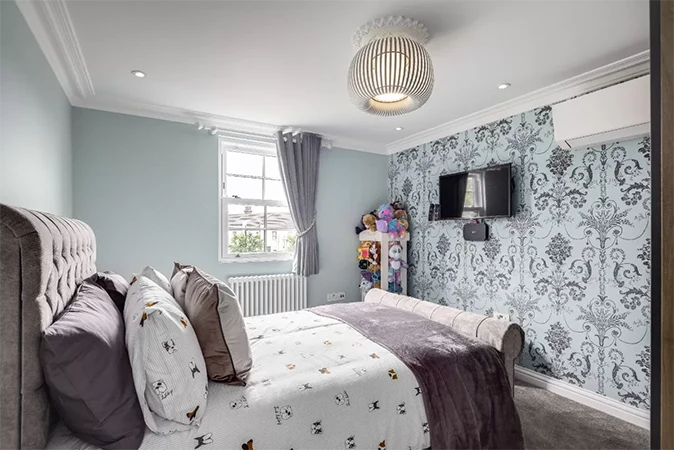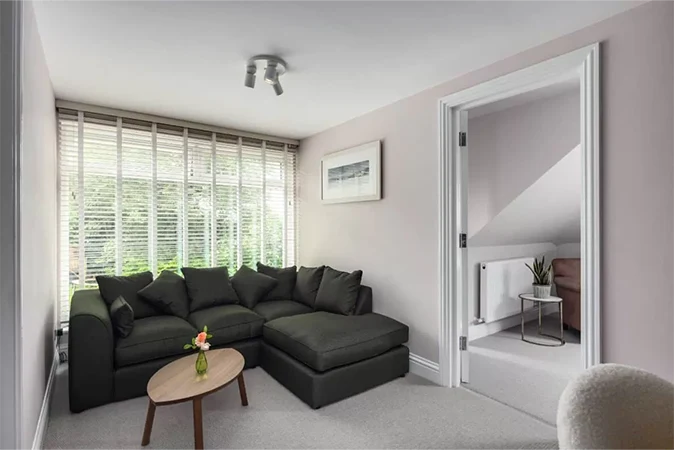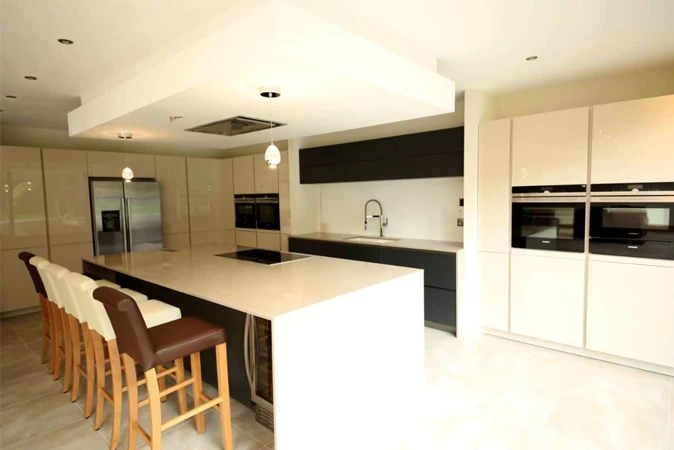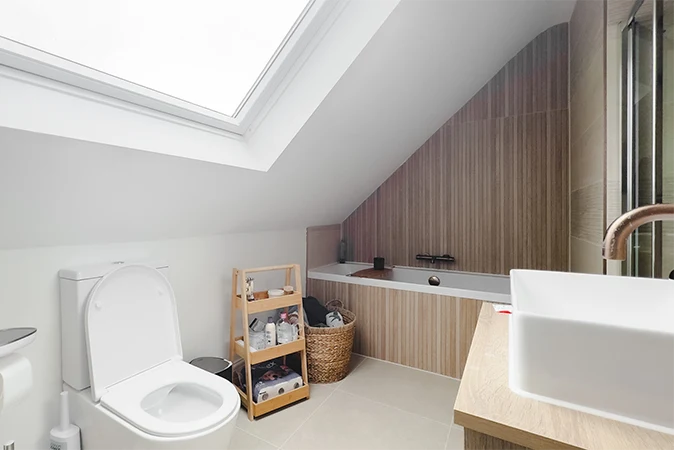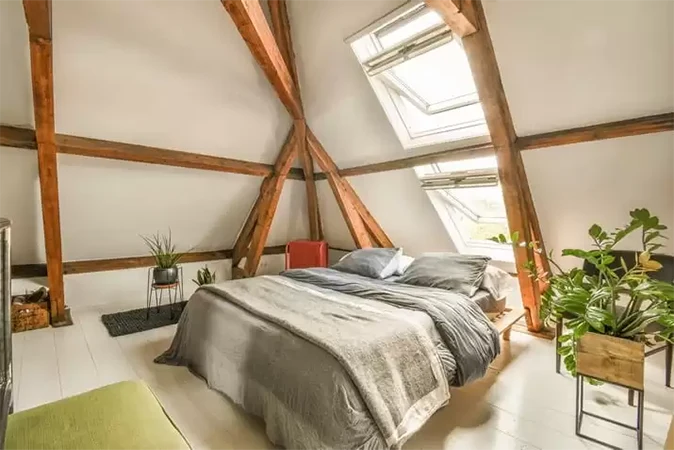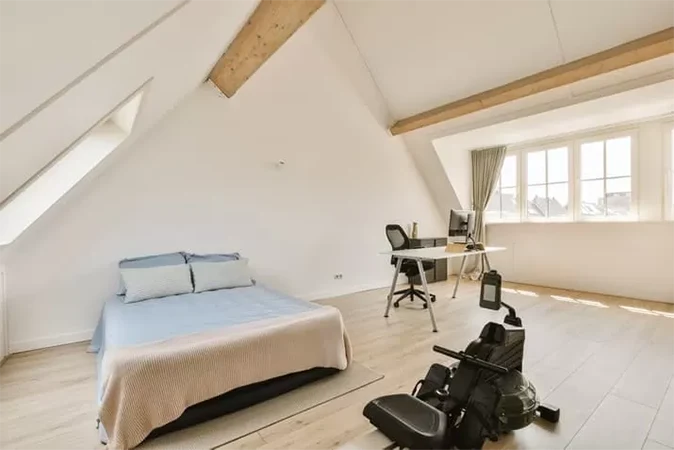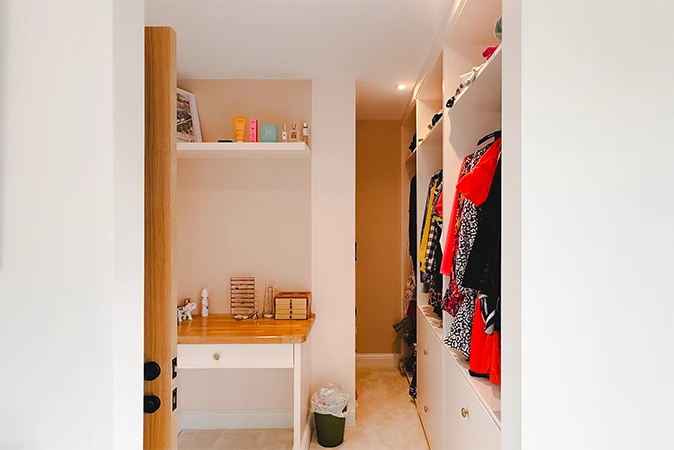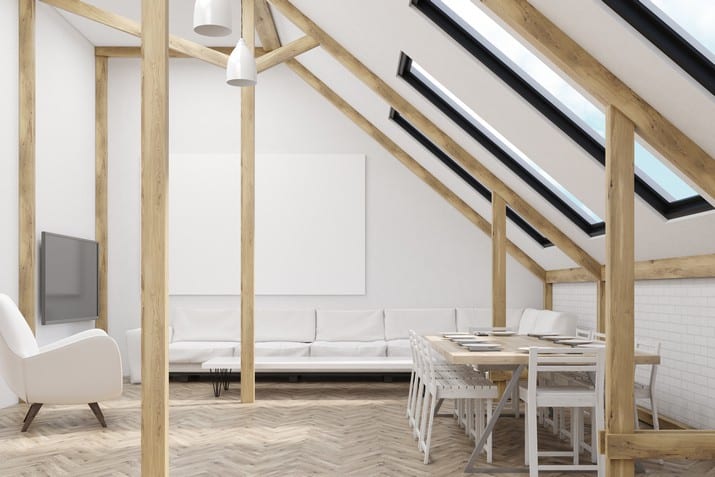Initial Considerations and Planning Stage
The journey of transforming your loft starts long before the actual construction begins. The initial stage involves planning and obtaining necessary permissions. In the UK, some loft conversions require planning permission, especially if they involve altering the roof line or exceed certain dimensions. Additionally, all loft conversions must comply with building regulations to ensure they are safe and habitable. This planning stage can take anywhere from two to eight weeks, depending on the complexity of your project and the speed of the local planning department.
Design and Architectural Input
Once you have the necessary permissions, the next step is to finalise the design. This process involves working with an architect or a specialist loft conversion company to develop detailed plans. The design stage is critical as it lays the foundation for the entire project. Factors like the type of conversion, whether it’s a simple roof light conversion or a more complex dormer or hip-to-gable conversion, will significantly influence the overall timeline. Typically, this design phase can take another four to six weeks, considering revisions and final approvals.
Structural Calculations and Material Ordering
After finalising the design, structural calculations are required to ensure the existing structure can support the new conversion. This technical stage is crucial for the safety and longevity of the loft conversion. Once these calculations are approved, the next step is to order the materials required for the project. Lead times for materials can vary, and delays in delivery can affect the overall timeline. It’s prudent to factor in an additional two to four weeks for this stage.
Actual Construction Phase
Now, we move onto the actual construction phase, which is the most time-consuming part of the process. The duration of this phase largely depends on the type of loft conversion. A simple roof light conversion might take around four to six weeks, whereas a more complex dormer conversion could take up to twelve weeks. During this phase, tasks such as installing the floor joists, reinforcing the roof, adding insulation, windows, and stairs, and completing the interior works are carried out. Weather conditions, especially in the UK, can also play a significant role in how quickly the construction phase progresses.
Interior Fitting and Finishing Touches
After the structural work is complete, the next stage is the interior fitting. This includes tasks like plastering, electrical work, plumbing (if a bathroom is part of the conversion), and carpentry. This stage can be quite quick, often taking around two to four weeks, but it largely depends on the complexity of your designs and finishes.
Unforeseen Delays and Challenges
It’s important to remember that unforeseen delays can occur. These might include discovering structural issues once the work has started, delays in material deliveries, or even changes to the project scope initiated by the homeowner. It’s always advisable to factor in a contingency time of around two to three weeks for such unexpected challenges.
In summary, the total time from conception to completion of a loft conversion can vary from around three months for a straightforward project to six months or more for a more complex or larger conversion. This timeline can be affected by factors such as the need for planning permission, the complexity of the design, the type of conversion, material availability, and unforeseen challenges. Let’s continue in the next part of this blog, where we’ll delve into additional details, including the importance of choosing the right contractors, how to streamline the process, and post-conversion considerations.
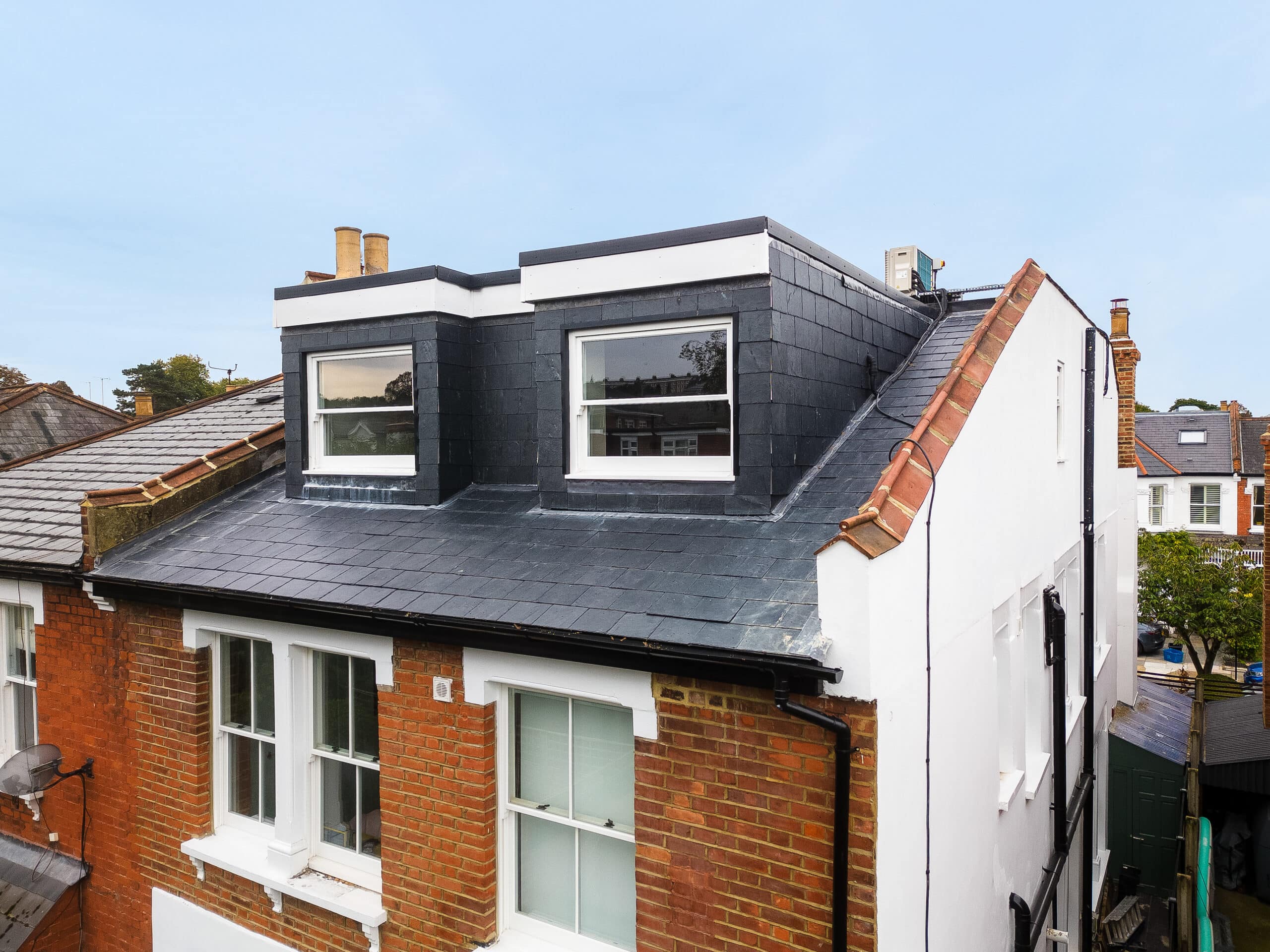
Choosing the Right Contractors
The selection of contractors can significantly impact the duration of your loft conversion. It’s crucial to choose a team that is not only skilled but also reliable and efficient. Look for contractors with a solid track record of completing loft conversions in a timely manner. Before finalising your team, check their references and previous work to gauge their efficiency and quality. Remember, a cheaper quote might not always be the best option if it leads to delays and subpar work.
Effective Communication and Project Management
Effective communication between you, the designers, and the builders is key to keeping the project on track. Regular meetings and updates will help in monitoring progress and addressing any issues promptly. Consider appointing a project manager who can oversee the conversion, ensuring that each stage of the process transitions smoothly into the next. Good project management can be the difference between a project that runs like clockwork and one that experiences frequent delays.
Streamlining the Process
There are several ways to streamline theloft conversion process. One method is to opt for prefabricated components where possible. For example, pre-assembled roof trusses can be installed much quicker than building them on-site. Additionally, ensure that all permissions and materials are in place before the construction begins to avoid delays once the work has started.
Post-Conversion Considerations
Once the construction phase is complete, there’s still some work to be done. This includes decorating, installing fixtures and fittings, and potentially furnishing the space. While these might seem like minor tasks, they can take time, especially if specific items have long lead times or if bespoke fittings are being made. It’s wise to plan for these final touches well in advance.
Planning for Disruption
Living in your home while the conversion is taking place can be challenging. Construction can be disruptive, and certain phases of the work, like installing the staircase, can be particularly intrusive. Planning for this disruption in advance can help minimise stress. For instance, if you work from home, you might need to find an alternative workspace for the duration of the project.
Contingency Planning
Always have a contingency plan in terms of both time and budget. Building projects are notorious for uncovering unexpected issues, especially in older properties. Having a buffer in your timeline and budget can help manage these unforeseen circumstances without too much stress.
Conclusion
The time it takes to complete a loft conversion varies widely depending on several factors, including the type of conversion, the speed of obtaining permissions, the efficiency of your contractors, and the complexity of the design. On average, you can expect the process to take anywhere from three to six months. We have recently completed a loft conversion in Reigate which took only 10 weeks, this was an extremely smooth project and a lot of the considerations within this article were taken into account however, we also recently had a much more difficult project in the Croydon area which didn’t run so smoothly, this took 5 months to complete. However, it’s important to prepare for potential delays and disruptions. With thorough planning, effective communication, and the right team in place, your loft conversion can be a smooth process that adds significant value and space to your home. Remember, a loft conversion is not just a construction project but an investment into your property and lifestyle. While it might seem like a long journey, the additional space and potential increase in property value often make it a worthwhile endeavour. With patience and careful planning, you’ll be able to transform your unused loft space into a beautiful and functional part of your home. Contact the team at LMB Group to find out more.








